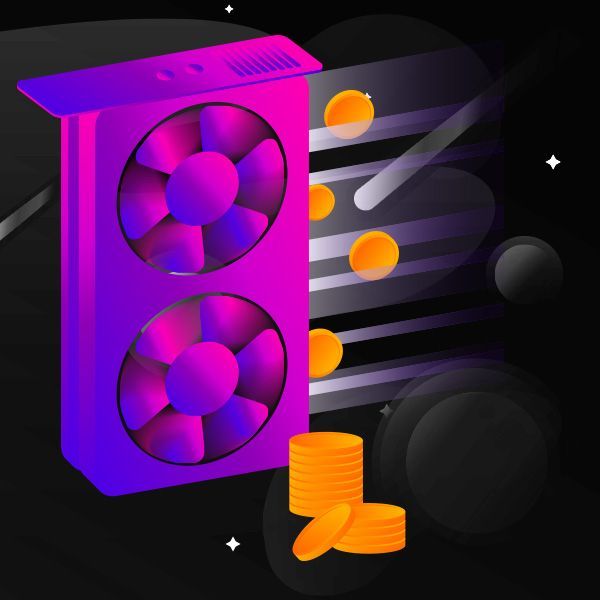What is Google Authenticator?
Let's find out Google Authenticator meaning, definition in crypto, what is Google Authenticator, and all other detailed facts.
Google Authenticator is a software-based verification system that generates unique, time-based, single-use authentication codes on mobile devices. The system is used to verify the identity of the user and allow them to access websites or applications. It was developed as an additional layer of digital security.
When users try to log into an account, Google Authenticator sends a code to their mobile devices to ensure the account is secure from breaching attempts. The code is time-sensitive and can only be accessed from a specific mobile device. If the hacker has the login details but doesn’t have access to the phone, they cannot break into the account.
Google Authenticator functions as two-factor authentication (2FA). Even if the SIM card of a mobile device is stolen, it does not contain the Google Authenticator codes, making it useless in the hacking process.
The security of private data is a significant topic in the digital world. There have been multiple instances of hackers claiming assets or personal information on online users because the login credentials were not appropriately secured. The losses from such digital attacks can be valued at millions and even billions of dollars.
Most online digital platforms rely on passwords to provide secure access to the services. While this login system is considered to be one of the most secure ways of protecting an account, it can be compromised and does not guarantee 100% security. Malware attacks and hacking can lead to sensitive information being stolen.
Google Authenticator was developed to reinforce the security of login details and put a tighter lock around the user data. The protected account can be accessed with a few easy steps:
- Download the Google Authenticator app;
- Log into your account;
- Add an account you want to secure, for example, the login credentials of your Binance digital wallet;
- Tap the “+” symbol and select “Scan a QR code”. Your Binance account will provide the QR code;
- Scan the code to access your account;
- Binance may prompt you to enter a special six-digit code from the Google Authenticator app. This code changes every 15 seconds;
- Ensure that your setup key is stored safely somewhere you can access.
Ensuring the security of financial data and assets is crucial in both traditional and cryptocurrency markets. Users are strongly recommended to set up 2FA on their banking accounts. There have been several notable instances of large sums of cryptocurrency being stolen by hackers, so it’s important to minimize the risks as much as possible.
Google Authenticator ensures that the only person with access to the crypto assets must also hold access to a specific mobile device and quickly respond to the prompted code request. This ensures that the hackers do not have a time advantage to breach accounts.
Gossip protocol entails <strong>the broadcasting of information between multiple computers until every computer has received it<\/strong>. <\/p>\n<p>There is a variety of different Gossip protocols. Every one of them has been developed based on the needs of the end-user, or even specific circumstances or environment. <\/p>\n<p>Hashgraph, a <a href=https://www.bitdegree.org/"//crypto//learn//crypto-terms//what-is-distributed-ledger-technology-dlt/">distributed ledger technology<\/strong><\/a>, is one of the few examples that facilitate the gossip protocol. It was launched by Leemon Baird. Hashgraph implements an asynchronous Byzantine Fault Tolerance (aBFT) consensus mechanism.<\/p>\n<p>In this case, the network nodes collect and summarize transaction-related data and distribute it among random neighbor nodes. Hashgraph builds a data-filled tree of events, unlike a <a href=https://www.bitdegree.org/"//crypto//learn//crypto-terms//what-is-blockchain/">blockchain building a chain of blocks.<\/p>\n<p>\u200b\u200bMárk Jelasity, a professor at the University of Szeged, states that gossip manifests itself in one of two ways: <strong>information aggregation<\/strong> a.k.a. distributed data mining, or <strong>information dissemination<\/strong> a.k.a. multicast.<\/p>\n<p>Information aggregation gossip type summarizes and distributes information. Meaning it directly processes said information. Meanwhile, information dissemination gossip type operates like a traditional data distribution model.<\/p>\n<p>They are the main components of distributed systems on a large scale.<\/p>","definition":"peer-to-peer communication between any type of digital device.","status":"published","meta_title":"What is Gossip Protocol? Definition & Meaning | Crypto Wiki","meta_description":"Gossip Protocol meaning: Gossip Protocol - peer-to-peer communication between any type of digital device.","meta_keywords":null}" :prev-section="{"id":441,"wikipedia_url":"https:\/\/en.wikipedia.org\/wiki\/Moving_average_crossover","level":"medium","author_id":1,"created_at":"2023-06-19T06:59:00.000000Z","updated_at":"2023-12-08T02:06:52.000000Z","slug":"what-is-golden-cross","title":"What is Golden Cross?","section":"G","keyword":"Golden Cross","content":"<p>A golden cross is a chart pattern that occurs when the short-term moving average crosses over the long-term moving average. In other words, <strong>the golden cross is a bullish breakout structure formed when a security's short-term moving average crosses beyond its long-term moving average or barrier properties level.<\/strong><\/p>\n<p>The most widely-used moving average setting is the 50-day moving average and the 200-day moving average.<\/p>\n<h3>The Trading Technique of the Golden Cross<\/h3>\n<p>The most secure and widely-used technique is to make an entry into the market at the same time the golden cross is created. Nevertheless, a few traders also step into the market as soon as the moving averages move in a direction to create the golden cross to earn the benefit of entering the market prior to the creation.<\/p>\n<p>The majority of traders utilize the golden cross with multiple technical indicators to evaluate the volume and price activity from different angles prior to deciding on whether to buy or sell.<\/p>\n<p><a href=https://www.bitdegree.org/"//crypto//learn//crypto-terms//what-is-moving-average-convergence-divergence-macd/">Moving average convergence divergence (MACD)<\/strong><\/a>, <a href=https://www.bitdegree.org/"//crypto//learn//crypto-terms//what-is-on-balance-volume-obv/">on-balance volume (OBV)<\/strong><\/a>, <a href=https://www.bitdegree.org/"//crypto//learn//crypto-terms//what-is-accumulation-distribution-indicator/">accumulation//distribution indicator<\/strong><\/strong><\/a>, <a href=https://www.bitdegree.org/"//crypto//learn//crypto-terms//what-is-relative-strength-index-rsi/">relative strength index (RSI)<\/strong><\/a>, and the <a href=https://www.bitdegree.org/"//crypto//learn//crypto-terms//what-is-stochastic-oscillator/">stochastic oscillator<\/strong><\/a> are among the technical indicators.<\/p>\n<h3>The Three Main Stages of the Golden Cross<\/h3>\n<p>The first phase denotes the conclusion of the downtrend as the gap (denoting volume) in the 50-day and 200-day moving averages begins to narrow.<\/p>\n<p>The 50-day moving average meets the 200-day moving average to produce a golden cross in the second phase.<\/p>\n<p>The final phase is the upswing that occurs following the appearance of the golden cross. This is generally an excellent time to invest in an asset to get the most rewards as the rise unfolds.<\/p>\n<p>For many traders, a golden cross is the most conclusive evidence of a <a href=https://www.bitdegree.org/"//crypto//learn//crypto-terms//what-is-bull-market/">bull market<\/strong><\/a> and a powerful purchasing indicator. Yet, for others, it is merely a verification instead of a signal to enter the market. Expert traders suggest not to use the golden cross as a stand-alone trading signal, but rather as part of a strategy.<\/p>\n<h3>Can Traders Trust the Golden Cross?<\/h3>\n<p>When it comes to the golden cross indication, there could be doubt and disagreement among financial professionals. Nonetheless, it has done exceptionally well in recent years. <\/p>\n<p><strong>The S&P index<\/strong>, for instance, rose by more than 50% since the last golden cross shown on its trading graphs.<\/p>","definition":"When the short-term moving average crosses over the long-term moving average, a golden cross appears on the chart.","status":"published","meta_title":"What is Golden Cross? Definition & Meaning | Crypto Wiki","meta_description":"Golden Cross meaning: Golden Cross - When the short-term moving average crosses over the long-term moving average, a golden cross appears on the chart.","meta_keywords":null}" :model="{"id":393,"wikipedia_url":"https:\/\/en.wikipedia.org\/wiki\/Google_Authenticator","level":"medium","author_id":1,"created_at":"2023-06-19T06:58:59.000000Z","updated_at":"2023-12-08T03:58:48.000000Z","slug":"what-is-google-authenticator","title":"What is Google Authenticator?","section":"G","keyword":"Google Authenticator","content":"<p><strong>Google Authenticator<\/strong> is a software-based verification system that generates unique, time-based, single-use authentication codes on mobile devices. The system is used to <strong>verify the identity of the user<\/strong> and allow them to access websites or applications. It was developed as an additional layer of digital security.<\/p>\n<p>When users try to log into an account, Google Authenticator <strong>sends a code to their mobile devices<\/strong> to ensure the account is secure from breaching attempts. The code is time-sensitive and can only be accessed from a specific mobile device. If the hacker has the login details but <strong>doesn’t have access to the phone<\/strong>, they cannot break into the account.<\/p>\n<p>Google Authenticator functions as <a href=https://www.bitdegree.org/"//crypto//learn//crypto-terms//what-is-two-factor-authentication-2fa/">two-factor authentication (2FA)<\/strong><\/a>. Even if the SIM card of a mobile device is stolen, it does not contain the Google Authenticator codes, making it useless in the hacking process.<\/p>\n<p>The <strong>security of private data<\/strong> is a significant topic in the digital world. There have been multiple instances of hackers claiming assets or personal information on online users because the login credentials were not appropriately secured. The losses from such digital attacks can be valued at millions and even billions of dollars.<\/p>\n<p><strong>Most online digital platforms<\/strong> rely on passwords to provide secure access to the services. While this login system is considered to be one of the most secure ways of protecting an account, it can be compromised and does not guarantee 100% security. <a href=https://www.bitdegree.org/"//crypto//learn//crypto-terms//what-is-malware/">Malware attacks<\/strong><\/strong><\/a> and <a href=https://www.bitdegree.org/"//crypto//learn//crypto-terms//what-is-hacking/">hacking can lead to sensitive information being stolen.<\/p>\n<p>Google Authenticator was developed to reinforce the security of login details and put a tighter lock around the user data. The protected account can be accessed with a few easy steps:<\/p>\n<ul>\n<li>Download the <strong>Google Authenticator app<\/strong>;<\/li>\n<li>Log into your account;<\/li>\n<li>Add an account you want to secure, for example, the login credentials of your <a href=https://www.bitdegree.org/"https:////www.bitdegree.org//crypto//goon//binance/" target=\"_blank\" rel=\"nofollow noindex noopener\"><strong>Binance<\/strong><\/a> digital wallet;<\/li>\n<li>Tap the “+” symbol and select “Scan a QR code”. Your Binance account will provide the QR code;<\/li>\n<li><strong>Scan the code<\/strong> to access your account;<\/li>\n<li>Binance may prompt you to enter a special six-digit code from the Google Authenticator app. This code changes every 15 seconds;<\/li>\n<li>Ensure that your setup key is stored safely somewhere you can access.<\/li>\n<\/ul>\n<p>Ensuring the security of financial data and assets is crucial in both <strong>traditional and<\/strong> <a href=https://www.bitdegree.org/"//crypto//learn//crypto-terms//what-is-market/">cryptocurrency markets<\/strong><\/a>. Users are strongly recommended to set up 2FA on their banking accounts. There have been several notable instances of large sums of cryptocurrency being stolen by hackers, so it’s important to minimize the risks as much as possible.<\/p>\n<p>Google Authenticator ensures that <strong>the only person with access to the crypto assets must also hold access to a specific mobile device<\/strong> and quickly respond to the prompted code request. This ensures that the hackers do not have a time advantage to breach accounts.<\/p>","definition":"software-based verification system that generates unique, time-based, single-use authentication codes on mobile devices.","status":"published","meta_title":"What is Google Authenticator? Definition & Meaning | Crypto Wiki","meta_description":"Google Authenticator meaning: Google Authenticator - software-based verification system that generates unique, time-based, single-use authentication codes on mobile devices.","meta_keywords":null,"author":{"id":1,"user_id":1,"created_at":"2023-05-03T14:30:55.000000Z","updated_at":"2023-05-11T07:18:20.000000Z","title":"Editor-In-Chief","slug":"aaron-s-editor-in-chief","description":"<p>Having completed a Master’s degree on Economics, Politics & Culture for the East Asia region, Aaron has written scientific papers with a comparative analysis of the differences between US’ Western and Japan’s Collective forms of capitalism, 1945-2020.<\/p>\n<p>With close to a decade of experience in the FinTech industry, Aaron understands all of the biggest issues and struggles that crypto enthusiasts face. He’s a passionate analyst who is concerned with data-driven and fact-based content, as well as that which speaks to both Web3 natives and industry newcomers.<\/p>\n<p>Aaron is the go-to person for everything and anything related to digital currencies. With a huge passion for blockchain & Web3 education, Aaron strives to transform the space as we know it, and make it more approachable to complete beginners.<\/p>\n<p>Aaron has been quoted by multiple established outlets, and is a published author himself. Even during his free time, he enjoys researching the market trends, and looking for the next supernova.<\/p>","user":{"id":1,"first_name":"Aaron","last_name":"S.","email":"aaron@bitdegree.org","email_sanitized":"aaron@bitdegree.org","email_verified_at":"2023-12-01T09:40:20.000000Z","must_verify_email":false,"is_registered_with_wallet":false,"status":"active","country":"LT","last_connected_ip":"88.119.132.125","image_id":2641,"referral_token":"05TMu2NysXOCn525","referred_by":null,"created_at":"2023-05-03T14:30:55.000000Z","updated_at":"2024-01-09T15:22:21.000000Z","full_name":"Aaron S."}}}" :chapter-list="[{"id":1,"title":"Blockchain","slug":"blockchain","updated":null,"chapter":"crypto\/assets\/crypto-book\/chapters\/learn-blockchain.jpg","chapter_simple":"crypto\/assets\/crypto-book\/chapters-simple\/blockchain-101.jpg","rating":100,"sections":[{"chapter_id":1,"order":1,"slug":"what-is-blockchain","title":"What is the Blockchain?","status":"published","modified_content":null},{"chapter_id":1,"order":2,"slug":"decentralized-blockchain","title":"Anonymous & Decentralized Blockchains: The Cornerstone of Crypto","status":"published","modified_content":null},{"chapter_id":1,"order":3,"slug":"blockchain-transaction","title":"What is a Blockchain Transaction in Crypto?","status":"published","modified_content":null},{"chapter_id":1,"order":4,"slug":"crypto-fees","title":"The Different Types of Crypto Fees Explained","status":"published","modified_content":null},{"chapter_id":1,"order":5,"slug":"what-is-bridging-in-crypto","title":"The Key Notion Behind the Concept of Bridging in Crypto","status":"published","modified_content":null},{"chapter_id":1,"order":6,"slug":"types-of-blockchains","title":"Different Types of Blockchains: What to Look Out For?","status":"published","modified_content":null}]},{"id":2,"title":"Cryptocurrencies","slug":"cryptocurrencies","updated":null,"chapter":"crypto\/assets\/crypto-book\/chapters\/learn-cryptocurrencies.jpg","chapter_simple":"crypto\/assets\/crypto-book\/chapters-simple\/cryptocurrencies-101.jpg","rating":100,"sections":[{"chapter_id":2,"order":1,"slug":"what-is-a-cryptocurrency","title":"What is a Cryptocurrency?","status":"published","modified_content":null},{"chapter_id":2,"order":2,"slug":"how-does-cryptocurrency-work","title":"How Does Cryptocurrency Work?","status":"published","modified_content":null},{"chapter_id":2,"order":3,"slug":"is-cryptocurrency-a-good-investment","title":"Is Cryptocurrency a Good Investment? The Pros & Cons","status":"published","modified_content":null},{"chapter_id":2,"order":4,"slug":"coin-vs-token","title":"Coin VS Token: How Do They Differ?","status":"published","modified_content":null},{"chapter_id":2,"order":5,"slug":"what-are-stablecoins","title":"What are Stablecoins, Altcoins & Wrapped Coins?","status":"published","modified_content":null},{"chapter_id":2,"order":6,"slug":"what-is-a-bitcoin","title":"Bitcoin: the Pioneer of the Crypto World","status":"published","modified_content":null},{"chapter_id":2,"order":7,"slug":"what-is-ethereum","title":"The Ultimate Blockchain for dApp Creation: Ethereum","status":"published","modified_content":null},{"chapter_id":2,"order":8,"slug":"what-is-cardano-in-crypto","title":"What is Cardano and What is It Used For?","status":"published","modified_content":null},{"chapter_id":2,"order":9,"slug":"what-is-shiba-inu-coin","title":"Shiba Inu: the Dogecoin Killer","status":"published","modified_content":null},{"chapter_id":2,"order":10,"slug":"what-is-solana-in-crypto","title":"Is Solana an Improved Version of Ethereum?","status":"published","modified_content":null},{"chapter_id":2,"order":11,"slug":"what-is-polkadot-in-crypto","title":"The Bridge Between Blockchains: Polkadot","status":"published","modified_content":null},{"chapter_id":2,"order":12,"slug":"what-is-polygon-in-crypto","title":"Polygon: the Essential Scaling Solution for Ethereum","status":"published","modified_content":null},{"chapter_id":2,"order":13,"slug":"what-is-luna-crypto","title":"The Bumpy Road of Terra (LUNA)","status":"published","modified_content":null},{"chapter_id":2,"order":14,"slug":"what-is-fantom-crypto","title":"Is Fantom (FTM) Yet Another Ethereum Killer?","status":"published","modified_content":null},{"chapter_id":2,"order":15,"slug":"what-is-aave-crypto","title":"Aave: Crypto Lending Trailblazer","status":"published","modified_content":null},{"chapter_id":2,"order":16,"slug":"what-is-algorand-crypto","title":"Did Algorand Truly Solve the Blockchain Trilemma?","status":"published","modified_content":null},{"chapter_id":2,"order":17,"slug":"what-is-olympus-dao","title":"Does Olympus DAO Have Anything to Do With Mythology?","status":"published","modified_content":null},{"chapter_id":2,"order":18,"slug":"what-is-avax","title":"Is Avalanche Network (AVAX) Rightfully Called the Future of DeFi?","status":"published","modified_content":null},{"chapter_id":2,"order":19,"slug":"what-is-monero-coin","title":"Monero: Where Cryptocurrency Meets Cryptography","status":"published","modified_content":null},{"chapter_id":2,"order":20,"slug":"what-is-ripple-xrp","title":"Is Ripple \"it\" When it Comes to Cross-Border Transactions?","status":"published","modified_content":null},{"chapter_id":2,"order":21,"slug":"practical-use-of-cryptocurrencies","title":"The Practical Use of Crypto","status":"published","modified_content":null}]},{"id":3,"title":"Crypto Exchanges","slug":"crypto-exchanges","updated":null,"chapter":"crypto\/assets\/crypto-book\/chapters\/learn-crypto-exchanges.jpg","chapter_simple":"crypto\/assets\/crypto-book\/chapters-simple\/crypto-exchanges-101.jpg","rating":80,"sections":[{"chapter_id":3,"order":1,"slug":"how-do-cryptocurrency-exchanges-work","title":"How do Cryptocurrency Exchanges Work?","status":"published","modified_content":null},{"chapter_id":3,"order":2,"slug":"dex-vs-cex","title":"DEX VS CEX: Two Sides of the Crypto Exchange Industry","status":"published","modified_content":null},{"chapter_id":3,"order":3,"slug":"crypto-day-trading","title":"Crypto Day Trading: The Difference Between Buying, Trading, and Swapping","status":"published","modified_content":null},{"chapter_id":3,"order":4,"slug":"kyc-crypto","title":"KYC & AML: The Key to Complying With Legal Industry Standards","status":"published","modified_content":null},{"chapter_id":3,"order":5,"slug":"how-to-buy-crypto","title":"From Fiat to Crypto: How to Buy Crypto for the First Time","status":"published","modified_content":null},{"chapter_id":3,"order":6,"slug":"fiat-to-crypto","title":"Taking Profits: Turning Crypto Into Fiat","status":"published","modified_content":null},{"chapter_id":3,"order":7,"slug":"how-to-use-crypto","title":"You\u2019ve Got Crypto: What Can You Do With It?","status":"published","modified_content":null}]},{"id":4,"title":"Crypto Wallets","slug":"crypto-wallets","updated":false,"chapter":"crypto\/assets\/crypto-book\/chapters\/learn-crypto-wallets.jpg","chapter_simple":"crypto\/assets\/crypto-book\/chapters-simple\/crypto-wallets-101.jpg","rating":80,"sections":[{"chapter_id":4,"order":1,"slug":"what-is-a-crypto-wallet","title":"What is a Crypto Wallet?","status":"published","modified_content":null},{"chapter_id":4,"order":2,"slug":"hot-wallet-vs-cold-wallet","title":"Hot Wallet VS Cold Wallet: Which One to Pick?","status":"published","modified_content":null},{"chapter_id":4,"order":3,"slug":"non-custodial-wallet","title":"What are Non-Custodial Crypto Wallets?","status":"published","modified_content":null},{"chapter_id":4,"order":4,"slug":"what-is-metamask","title":"Metamask: The Leading Non-Custodial Wallet","status":"published","modified_content":null},{"chapter_id":4,"order":37,"slug":"how-safe-is-cryptocurrency","title":"The Key Crypto Wallet Safety Practices: How Safe Can Crypto Be?","status":"published","modified_content":null}]},{"id":5,"title":"NFTs","slug":"nfts","updated":null,"chapter":"crypto\/assets\/crypto-book\/chapters\/learn-nfts.jpg","chapter_simple":"crypto\/assets\/crypto-book\/chapters-simple\/nfts-101.jpg","rating":100,"sections":[{"chapter_id":5,"order":2,"slug":"how-to-trade-nfts","title":"NFT Trading: The Ins and Outs","status":"published","modified_content":null},{"chapter_id":5,"order":3,"slug":"buying-nft","title":"Tips and Tricks of Choosing the Right NFTs","status":"published","modified_content":null},{"chapter_id":5,"order":4,"slug":"how-to-store-nft","title":"How to Store NFTs: Best Practices","status":"published","modified_content":null},{"chapter_id":5,"order":5,"slug":"how-to-create-an-nft","title":"How to Create Your Own NFTs?","status":"published","modified_content":null},{"chapter_id":5,"order":6,"slug":"how-to-make-passive-money-with-nft","title":"Making Passive Money with NFTs","status":"published","modified_content":null}]},{"id":6,"title":"dApps & Defi","slug":"dapps-and-defi","updated":true,"chapter":"crypto\/assets\/crypto-book\/chapters\/learn-dapps.jpg","chapter_simple":"crypto\/assets\/crypto-book\/chapters-simple\/dapps-defi-101.jpg","rating":80,"sections":[{"chapter_id":6,"order":1,"slug":"what-are-nfts","title":"What are Non-Fungible Tokens (NFTs)?","status":"published","modified_content":null},{"chapter_id":6,"order":1,"slug":"what-is-defi","title":"What is Decentralized Finance (DeFi)?","status":"published","modified_content":null},{"chapter_id":6,"order":2,"slug":"what-is-defi-2-0","title":"DeFi 2.0: The New Version of Decentralized Finance","status":"published","modified_content":null},{"chapter_id":6,"order":3,"slug":"what-are-dapps-in-crypto","title":"What Are dApps and How Do They Work?","status":"published","modified_content":null},{"chapter_id":6,"order":4,"slug":"defi-dapps","title":"Picking the Right dApps: Dos and Don'ts","status":"published","modified_content":null},{"chapter_id":6,"order":5,"slug":"what-is-web-3-0","title":"Web 3.0: The Future of the Internet","status":"published","modified_content":null},{"chapter_id":6,"order":6,"slug":"what-are-smart-contracts","title":"What is the Core Purpose of Smart Contracts?","status":"published","modified_content":null},{"chapter_id":6,"order":7,"slug":"what-is-a-dao-in-crypto","title":"The Notion of a Decentralized Autonomous Ogranization (DAO)","status":"published","modified_content":null},{"chapter_id":6,"order":8,"slug":"what-is-staking-in-crypto","title":"What is the Goal of Staking Crypto Assets?","status":"published","modified_content":null},{"chapter_id":6,"order":9,"slug":"what-is-liquidity-pool-in-crypto","title":"What is a Liquidity Pool and How Does It Work?","status":"published","modified_content":null},{"chapter_id":6,"order":10,"slug":"what-is-automated-market-maker","title":"Automated Market Maker: the Cornerstone of the Decentralized Crypto Exchange Industry","status":"published","modified_content":null},{"chapter_id":6,"order":11,"slug":"what-is-yield-farming-in-crypto","title":"The Main Yield Farming Techniques","status":"published","modified_content":null},{"chapter_id":6,"order":12,"slug":"what-is-an-oracle-in-crypto","title":"Crypto Oracles: The Link Between Blockchain and Outside World Data","status":"published","modified_content":null},{"chapter_id":6,"order":13,"slug":"crypto-gambling","title":"The Peculiarities of Decentralized Crypto Gambling","status":"published","modified_content":null},{"chapter_id":6,"order":14,"slug":"what-is-the-metaverse","title":"Metaverse: A New Perception of Reality","status":"published","modified_content":null}]},{"id":7,"title":"Trading & Investing","slug":"trading-and-investing","updated":null,"chapter":"crypto\/assets\/crypto-book\/chapters\/learn-crypto-trading.jpg","chapter_simple":"crypto\/assets\/crypto-book\/chapters-simple\/crypto-trading-101.jpg","rating":80,"sections":[{"chapter_id":7,"order":1,"slug":"where-to-trade-crypto","title":"Where Can You Trade Cryptocurrencies?","status":"published","modified_content":null},{"chapter_id":7,"order":2,"slug":"how-to-invest-in-crypto","title":"Investing in Crypto: What Investing Options Do You Have?","status":"published","modified_content":null},{"chapter_id":7,"order":3,"slug":"ico-vs-ido","title":"ICO vs IDO vs IEO: Which One is the One?","status":"published","modified_content":null},{"chapter_id":7,"order":4,"slug":"what-is-an-airdrop","title":"What are Crypto Airdrops and How to Get Them?","status":"published","modified_content":null},{"chapter_id":7,"order":5,"slug":"how-to-get-free-crypto","title":"How to Get Free Crypto Assets?","status":"published","modified_content":null},{"chapter_id":7,"order":6,"slug":"how-to-arbitrage-crypto","title":"What is Crypto Arbitrage: The Main Principles","status":"published","modified_content":null},{"chapter_id":7,"order":7,"slug":"what-is-a-perpetual-contract","title":"Perpetual Contracts: Futures Contracts Without an Expiration Date","status":"published","modified_content":null},{"chapter_id":7,"order":8,"slug":"what-is-fud","title":"What is FUD: How to Use It to Your Advantage While Investing in Crypto?","status":"published","modified_content":null},{"chapter_id":7,"order":9,"slug":"investing-in-cryptocurrency","title":"Investing in Cryptocurrency: How to Manage Your Risks?","status":"published","modified_content":null},{"chapter_id":7,"order":10,"slug":"what-is-a-rug-pull-in-crypto","title":"What is a Rug Pull in Crypto?","status":"published","modified_content":null},{"chapter_id":7,"order":11,"slug":"how-to-avoid-rug-pulls-in-crypto","title":"How to Spot and Avoid Rug Pulls?","status":"published","modified_content":null},{"chapter_id":7,"order":12,"slug":"how-to-avoid-crypto-taxes","title":"The Key Legal Techniques of Avoiding Crypto Taxes","status":"published","modified_content":null}]},{"id":8,"title":"Crypto Analysis","slug":"crypto-analysis","updated":null,"chapter":"crypto\/assets\/crypto-book\/chapters\/learn-crypto-analysis.jpg","chapter_simple":"crypto\/assets\/crypto-book\/chapters-simple\/crypto-analysis-101.jpg","rating":100,"sections":[{"chapter_id":8,"order":1,"slug":"what-is-bullish-and-bearish","title":"Bearish and Bullish Markets: Do They Matter?","status":"published","modified_content":null},{"chapter_id":8,"order":2,"slug":"best-technical-analysis-indicators-for-crypto","title":"5 Best Crypto Technical Analysis Indicators You Must Know About","status":"published","modified_content":null},{"chapter_id":8,"order":3,"slug":"what-is-candlesticks","title":"Technical Analysis: What are Candlesticks, Trendlines, and Patterns?","status":"published","modified_content":null},{"chapter_id":8,"order":4,"slug":"how-to-track-new-crypto-coins","title":"Crypto Tracking: How to Track Your Favorite Coins & Tokens?","status":"published","modified_content":null},{"chapter_id":8,"order":5,"slug":"how-to-research-crypto","title":"Crypto Research Fundamentals & Social Signals: Your Daily Trading Strategy","status":"published","modified_content":null},{"chapter_id":8,"order":46,"slug":"portfolio-diversification-definition","title":"Portfolio Diversification: The Whats, the Whys, and the Hows","status":"published","modified_content":null}]},{"id":9,"title":"Mining","slug":"mining","updated":false,"chapter":"crypto\/assets\/crypto-book\/chapters\/learn-crypto-mining.jpg","chapter_simple":"crypto\/assets\/crypto-book\/chapters-simple\/crypto-mining-101.jpg","rating":80,"sections":[{"chapter_id":9,"order":1,"slug":"what-is-crypto-mining","title":"Crypto Mining: What It is and How Does It Work?","status":"published","modified_content":null},{"chapter_id":9,"order":2,"slug":"what-is-a-mining-pool","title":"Mining Pools: Is Collective Mining Better Than Solo Mining?","status":"published","modified_content":null},{"chapter_id":9,"order":3,"slug":"what-is-staking-crypto","title":"An Advanced Look into What is Staking Crypto","status":"published","modified_content":null},{"chapter_id":9,"order":4,"slug":"what-is-proof-of-stake-vs-proof-of-work","title":"Proof-of-Work VS Proof-of-Stake: The Differences That Matter","status":"published","modified_content":null},{"chapter_id":9,"order":5,"slug":"what-is-crypto-mining-rig","title":"Crypto Mining Rig: What It is and How to Build One?","status":"published","modified_content":null}]},{"id":10,"title":"Crypto Terms","updated":false,"chapter":"crypto\/assets\/crypto-book\/chapters\/crypto-101-glossary.jpg","chapter_simple":"crypto\/assets\/crypto-book\/chapters-simple\/crypto-glossary-101.jpg","rating":100,"sections":["A","B","C","D","E","F","G","H","I","J","K","L","M","N","O","P","Q","R","S","T","U","V","W","X","Y","Z"]}]" current-chapter="G" current-section="what-is-google-authenticator">














